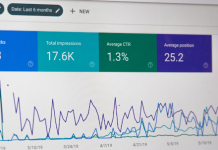Do you know that more than 65% of Gen Z employees live paycheck to paycheck? Well, it’s a shocking fact, but welcome to the real world, where your salary can be exhausted even before it lands in your bank account.
Table of Contents
Effective financial management is an art.
And it’s clear from the above stat that most people struggle with it. However, becoming financially stable isn’t as difficult as you think.
Here, I’ll share a few actionable tips that can help fresh grads achieve financial stability. However, keep in mind that these tips will only be effective when you discipline yourself and control some of your expensive desires.
So, let’s start!
Create a Budget
A weekly or a monthly budget can dramatically increase your financial literacy. And, it can empower you to make informed decisions about your personal finances.
Creating a budget is not a complicated process.
All you need to do is note down your income and record every expense. The goal here is to ensure that your expenses don’t exceed your income. Plus, a budget can be your guide and offer insights about your spending habits.
It’s a good idea to segregate your expenses into different categories to have a detailed breakdown. Additionally, recording expenses can also open ways to reduce unnecessary costs and help you control finances (which I’ll explain next).
Control Your Finances
It is likely the most difficult thing to do, but once you learn how to control your finances, the rest of the journey becomes a lot easier.
Now, a major part of controlling your finances involves reducing your living expenses. That said, I’m not implying that you should reduce the quality of your lifestyle, but simply lower unnecessary expenses in your house.
Sharing my personal story, I opted for Optimum Internet a while ago. Besides being a fiber connection, the Optimum Internet cost was less than what I was paying before. Plus, I bundled my internet with TV, so the collective cost of both utilities was less than paying for them separately.
So, this is how you can smartly control and cut down unnecessary expenses around your house. And, all you need to do is be a little creative to control your finances.
Create an Emergency Fund
An emergency fund is like an umbrella that helps on rainy days. It can save you from going into debt or borrowing money from friends or family.
Through this step, you’ll have a clear idea of how much money you spend in a month. And, the goal of this step is to save enough money so that it lasts for at least 3-6 months.
God forbid, you lose your job, or any emergency comes up, this amount would come in handy. And, it’ll help you cover monthly expenses without taking a loan from anyone.
Create a 50/30/20 Rule
Before I explain this rule, keep in mind that it’s not a universal one. You can create and follow your rules, but the concept behind it remains the same.
Now, let me explain the 50/30/20 rule.
Suppose you earn $100 a month. Now, $50 covers your expenses, $30 goes into investments (which I’ll explain later), and the remaining $20 goes directly to your savings account.
As I said, it’s not mandatory to divide your income in this particular way. Also, you can stop saving once you’ve saved an ample amount worth 3-6 months of your monthly income. And, you can use it for other purposes, such as investing it or buying things you want.
Make Regular Investments
Once you’ve reached your savings goals, start investing. As a fresh graduate, your goal should be to retire early. And, you can easily achieve this goal if you start making investments earlier in your career.
Now, there are multiple options where you can invest your money. For instance, you can buy cryptocurrencies like Bitcoin, Ethereum, Solana, etc. Or, you can buy stocks of billion-dollar corporations like Amazon, Apple, Tesla, etc.
Other than this, you can also invest money to start a monthly passive income. That said, whichever investment option you choose, make sure you do your due diligence first. Research and explore low-risk investment opportunities, and as a general thumb rule, don’t put all your eggs in one basket.
Instead, diversify your investments to ensure better returns.
Also, before I conclude, take help from financial and budgeting tools. There are several tools, such as QuickBooks, FreshBooks, and more that can significantly help in managing your finances.
From recording your income to expenses, and dividing them into different categories, these tools can help you with everything. Plus, these tools can also generate detailed reports to help you thoroughly understand your financials.








